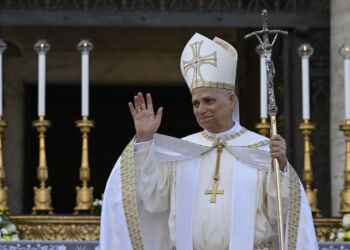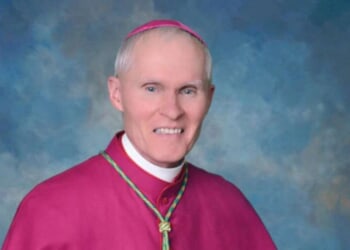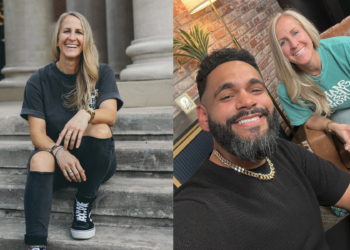I guess I first became aware of Stephen Fry — the Cambridge-educated actor, author, and broadcaster who was knighted this year by King Charles — in the early 1990s, when he starred in a small, charming British film called Peter’s Friends, directed by Kenneth Branagh, and teamed up with Hugh Laurie in the very funny British series Jeeves and Wooster, based on the P.G. Wodehouse stories. I caught him as Oscar Wilde in Wilde (1997) — not bad — and, later, in supporting roles in major films from both sides of the pond.
Rowling … is one of the people who have risked their reputations and their peace of mind to speak the truth about transgenderism.
For many years, Fry has been a staple of the BBC. In 2006 he made a documentary, The Secret Life of the Manic Depressive, in which — foolishly, in my view — he bragged that he opted to experience manic episodes (which caused untold anguish for his loved ones) rather than to take meds; two years later, he hosted a six-part series, Stephen Fry in America, in which — disappointingly — he exhibited the same obnoxious condescension toward the colonies that characterizes most British programming about the States. While scrolling through channels in recent years, I’ve seen him working as emcee on various BBC game shows, but I’ve never stayed tuned for long, because his palpable self-regard tends to get in the way of the fun.
Still, he’s had his moments. When he hosted the 2014 BAFTA awards ceremony, the winner of a writing award made a grammatical error in his acceptance speech, and I was delighted when Fry came back onstage and corrected him. Similarly, it was delicious to watch the 2018 Munk Debates, in which the twin dimwits Michelle Goldberg and Michael Eric Dyson, arguing for political correctness, were brilliantly slayed by the tag team of Fry and Jordan Peterson.
Then there’s this. A few months ago I was cheered to see that Fry, who is gay, had withdrawn his support from Stonewall, which was once Britain’s leading gay-rights organization but, like its counterparts in the U.S. and elsewhere, has long since switched to promoting transgender ideology. Fry explained that he had “no interest in supporting” the “nonsensical” ideas now pushed by Stonewall, which he described as a “shameful and sad” outfit that had gotten itself “stuck in a terrible, terrible quagmire.”
Three cheers. But fast forward to the other day, when Fry did a 180.
It all had to do with J.K. Rowling. I don’t suppose anyone in the Western world needs to be informed that Rowling, the mega-selling author of the beloved Harry Potter books, was viewed as something of a lefty until, in recent years, recognizing the threat that transgender ideology poses to girls and women, she began to take a bold and principled stand against it — thereby alienating not only millions of her readers but also several of the actors (such as Harry Potter himself, Daniel Radcliffe) who owe their careers to her.
Three years ago, apparently, Fry, who has supplied the voice on all of the Harry Potter audiobooks, declared his solidarity with Rowling on the trans issue. But now he’s changed teams. Appearing on a podcast the other day, he accused Rowling of having said “inflammatory, contemptuous, and mocking” things about transgenderism, thus making “a terribly distressing time for trans people” even worse. Fry added: “When it comes to the transphobia issue, it is right to remind people that trans people are here and that they are hurting. They are being abominably treated. There’s a great deal of bullying, violence, suicide, and genuine agony in the trans community.”
It’s more than a little surprising to see Fry, who is no dummy, parroting this insipid propaganda. Far from being “abominably treated,” trans people are at the present moment the English-speaking world’s favorite minority, even more than Muslims. The suicide line is a lie, fed to parents to secure their approval for surgical butchery and used in debates to shut up the opposition. If trans people are in “agony,” moreover, it’s because they’re so psychologically fragile that anything short of universal celebration of their self-delusion turns them into basket cases.
And the bit about being bullied? They’re the ones who are doing the bullying — not asking to be left alone but demanding that Western civilization’s understanding of basic biology, including its definitions of male and female, be altered, and that those who refuse to go along be punished for it. J.K. Rowling is brave for having stood up to this tyranny — and for having held her own for years in the face of unrelenting harassment by people intent on carrying out a revolution against common sense.
To Fry, however, it’s Rowling who is the radical. On the podcast, he said that she’d been radicalized by TERFs. TERF, or “trans-exclusionary radical feminist,” is a demeaning term for biological women who refuse to buy the fiction that a biological man who says he’s a woman is indeed a woman. In this brave new world of transgender cultural tyranny, you see, you can’t call somebody like the Biden health official Richard (Rachel) Levine a man, and you can’t use an offensive word like “tranny” (which a few years ago was fine with everybody); but you can call a woman a TERF, even if she’s neither radical nor feminist.
In any event, to say that Rowling has been “radicalized” because she declines to alter her understanding of fundamental human realities to conform to the trends of the moment is absurd. Radical? It’s Fry who has aligned himself with the radicals.
Can it be that Fry hasn’t read Vaclav Havel’s landmark Cold War essay “The Power of the Powerless?” Havel’s essay is about how tyrannical societies use the fear of professional disaster, social ostracism, and worse to force individuals to affirm the falsehoods by which those societies live, and how those individuals can wield a power beyond their own imagining simply by telling the truth.
It’s all about being brave — about being willing to be among the first in a society to stand up and dissent, in the expectation that others, perhaps a little less brave, will soon join in, and that still others will do so over time, ultimately creating a swell of rebellion that can topple a regime and restore truth to its proper place.
Rowling, who didn’t go to either Oxford or Cambridge and who was living on the edge of poverty when her first Harry Potter book came out, is one of the people who have risked their reputations and their peace of mind to speak the truth about transgenderism. I’ve never read a word of her books and walked out of the first Harry Potter movie, bored to death, after a half hour or so.
For all her accomplishments, it may well be that the supremely charming and eloquent Stephen Fry, who has written books about classical music and the Greek myths, is a far more deeply cultured person than she is. But this clash between the two of them has made clear which of them is braver — not the formidable 6’5” Stephen Fry, but the slim J.K. Rowling, all 5’5” of her. Funny how these things work.
READ MORE from Bruce Bawer:
Meet the Rich Boy Who Loves the Estate Tax



![Man Arrested After Screaming at Senators During Big Beautiful Bill Debate [WATCH]](https://www.right2024.com/wp-content/uploads/2025/06/Man-Arrested-After-Screaming-at-Senators-During-Big-Beautiful-Bill-350x250.jpg)











